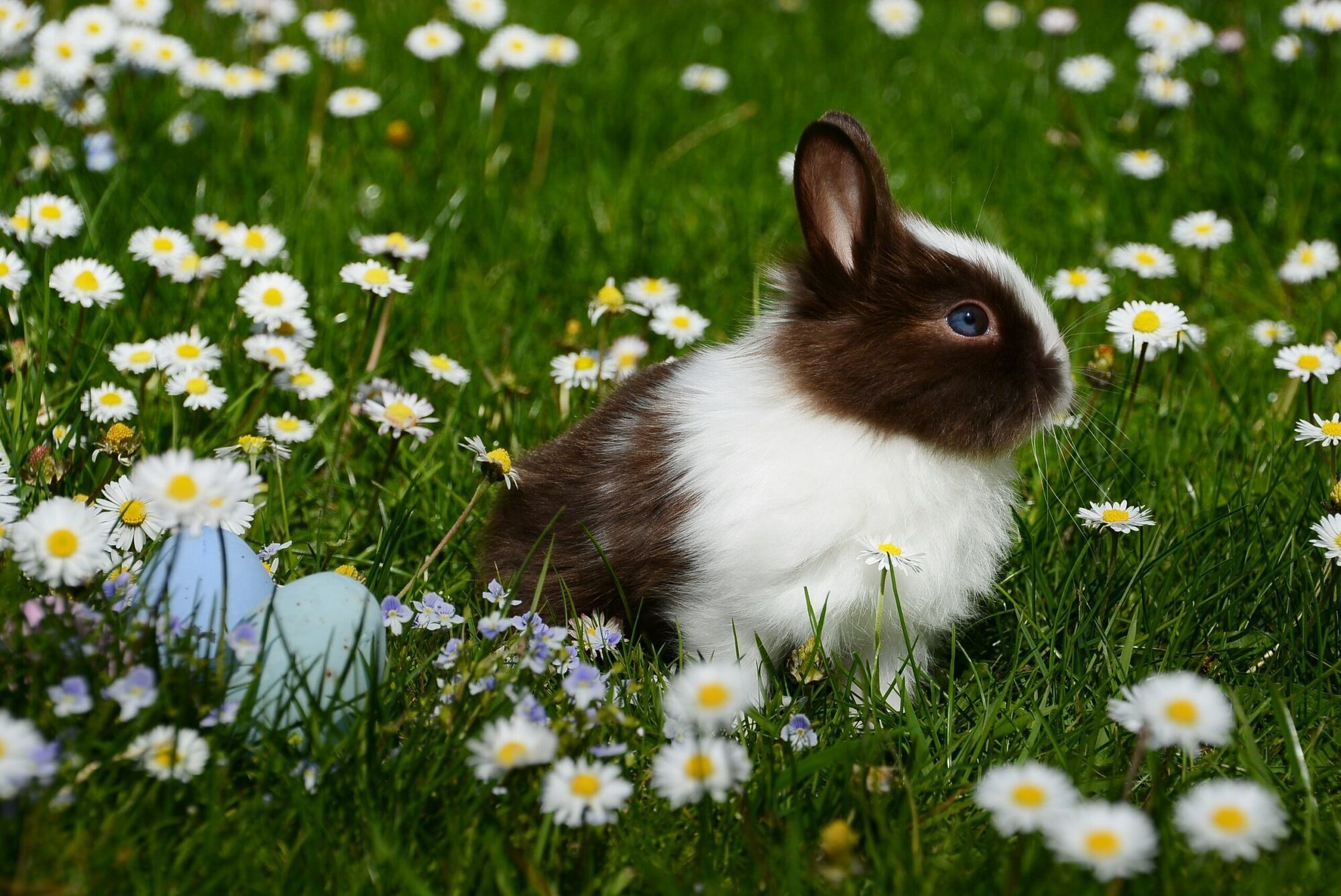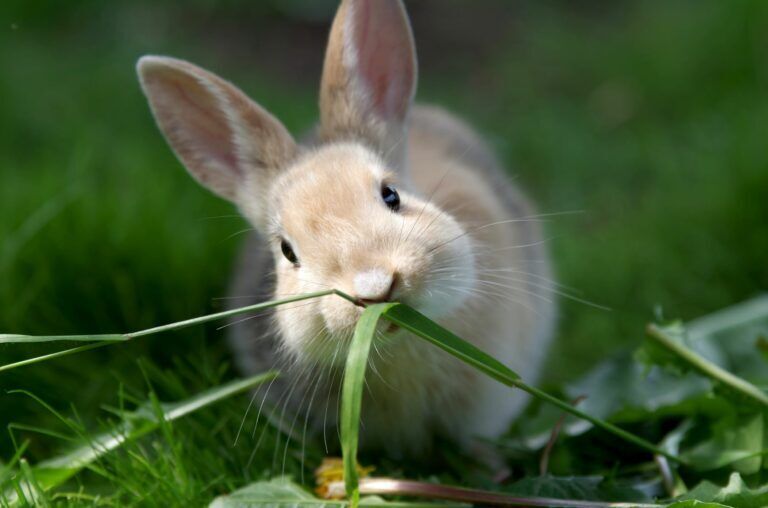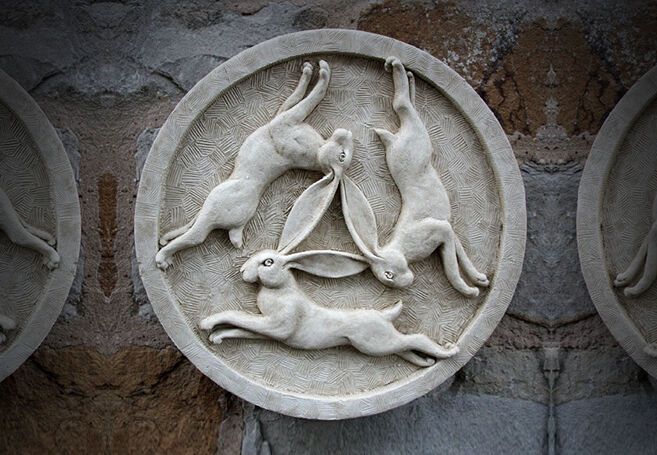15 Spiritual Meanings of Rabbit

Rabbits have been a familiar presence for people around the world for centuries. Initially seen primarily as a food source, they have developed complex spiritual significance over time. This article explores rabbit symbolism and its interpretations across various cultures throughout history.
What Do Rabbits Symbolize?
Before diving into specific traditions, it's essential to recognize the traits of rabbits that shape their symbolic meanings. One of the most obvious characteristics is speed. Due to their role as prey for many animals, they rely on quickness for survival. This has led to associations with innocence and vulnerability; they symbolize peace, choosing to flee rather than confront threats. However, this flight instinct might also represent cowardice.
Additionally, rabbits represent endurance. For instance, some battery manufacturers have chosen rabbits as symbols. Another significant attribute of rabbits is their prolific breeding, which links them to abundance and fertility. Their visibility during spring connects them to themes of rebirth. Including hares broadens associations to spring and even hints at madness, as evidenced by the English saying "mad as a March hare." The undeniable cuteness of rabbits contributes to their presence in children's stories, blending innocence with other traits.

Rabbit Spiritual Meanings According to Various Cultures
Rabbits and hares thrive across diverse regions, leading to intriguing symbolism among various peoples.
Native American Beliefs
In Native American culture, rabbits are often regarded as tricksters or shapeshifters. They symbolize cleverness, depicting characters outwitting opponents. For example, among the Ojibwe tribe, the trickster god Nanabozho frequently assumed the form of a rabbit, known in this form as Mishaabooz, the "Great Rabbit." He notably named plants and animals, taught survival skills, and founded Midewiwin, the Great Medicine Society.
Among the Cherokee, the rabbit is a site of mischief and wisdom. One tale narrates how a rabbit tricks an otter into a meeting under false pretenses. The rabbit pretends to help by misleading the otter during a break, ultimately stealing his coat. Though the rabbit escapes the bear's wrath, his actions lead to the loss of his tail — highlighting the blend of trickery and consequences.
In Southwestern tribes, rabbits are potent symbols of fertility and prosperity, embodying regal traits in myths about the flute player Kokopelli. This happy-go-lucky flute player is related to fertility and abundance.
Mesoamerican and Ancient Beliefs
Aztec mythology celebrated a pantheon of 400 rabbit deities known as the Centzon Tōtōchtin. In one notable story, Quetzalcoatl transforms into a man and is offered sustenance by a rabbit who selflessly offers itself. Moved by the rabbit’s generosity, Quetzalcoatl immortalizes the creature in the Moon, a lasting tribute to compassion.
Ancient Egyptians also identified rabbits with springtime and rebirth. They worshipped a goddess named Unut, sometimes depicted with a hare's head and a woman’s form.

Asian Perspectives
In Chinese folklore, the maiden Chang’e, who consumed the elixir of immortality, lived on the Moon alongside her rabbit companion. This connection to the Moon is striking. Additionally, the rabbit figures prominently in the Chinese zodiac, symbolizing elegance and kindness.
Japanese stories attribute luck to rabbits, associating them with the Moon. Here, rabbits are busy making mochi. Similar to Aztec narratives, a deity traveling from the Moon is offered sustenance by a selfless rabbit.
Global Representations
Korean folklore echoes these themes, representing Moon rabbits that create rice cakes, a local delicacy. In contrast, the U.S. exemplifies rabbits as clever characters, notably seen in stories regarding Brer Rabbit or depicted in the less scrupulous Bugs Bunny. Brer Rabbit primarily symbolizes cunning within the African-American narrative traditions.
In Europe, carrying a rabbit’s foot is linked with good fortune — a widespread belief across many cultures. In Britain, saying "rabbit, rabbit, rabbit" on the month’s first day promises luck. However, ironically, in areas such as the Isle of Portland, rabbits are seen as omens of bad luck, with locals reluctant to even mention their name.
The Three Hares Symbol
The three hares symbol, often found in Buddhism, Judaism, and Christianity, features three hares engaging in a perpetual chase, representing the cycles of life or the Moon. This motif conveys various themes, including fertility and often evokes the Holy Trinity or the Buddhist Wheel of Dharma.

Rabbit Symbolism in Modern Spirituality
In contemporary spiritual contexts, rabbits symbolize fertility, renewal, and new beginnings. Primarily linked to spring, their associations resonate with age-old beliefs around rebirth. Their heightened sensitivity and awareness, characterized by acute hearing and nearly omnidirectional vision, underscore deeper emotional connections.
An Animal with a Range of Meanings
Throughout diverse cultures, rabbits primarily symbolize positive attributes such as luck, fertility, vulnerability, and innocence. Their essence resonates through myths, folk tales, and children's stories across the globe, enriching narratives wherever they appear.



















